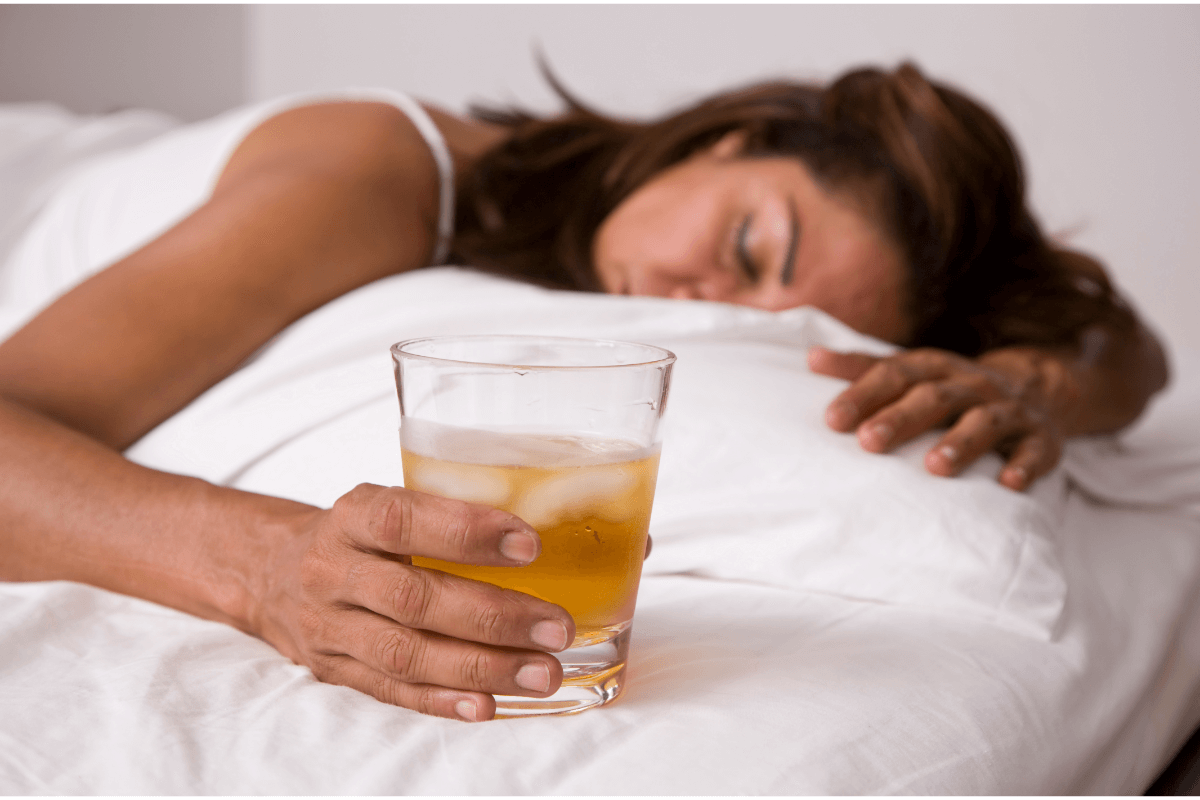
Drinking Alcohol and its Impact on Sleep
In the U.S., 29.5 million people have an alcohol use disorder.[1] Alcohol addiction can begin subtly — even with needing a few drinks to get to sleep. At Silver Sands Recovery, we know how you may think alcohol is helping with sleep when it’s doing the opposite. Our alcohol rehab in Arizona shares more information on why alcohol consumption negatively affects your quality of sleep.
Alcohol and Sleep: How Alcohol Hinders Rest
Alcohol is a depressant, meaning it slows down your central nervous system. It seemingly relaxes muscles and makes you sleepy. This is why many people think having a drink or two before bed is a good idea. Many even worry they won’t be able to sleep at all if they don’t drink.
To understand why alcohol and sleep don’t go well together, it helps to know what your sleep cycle is like. A typical sleep cycle comprises four repeated parts, the fourth being REM sleep. REM sleep typically starts about 90 minutes after you fall asleep, with your heartbeat and breathing speeding up and your eye movement restarting. This is when you experience most of your dreams.
Drinking alcohol before bed suppresses your REM sleep during the first two cycles, affecting your sleep quality. Instead of experiencing REM, you fall directly into a deep sleep that focuses on slow-wave sleep and doesn’t cycle between different stages.
Not being able to move through the various stages means that you can be more easily disrupted while you sleep and that the sleep you get is not the refreshing type you need.
Alcohol also makes conditions like sleep apnea and snoring worse. Both of these issues affect the quality of your sleep. Obstructive sleep apnea specifically causes you to wake up repeatedly during the night because your body stops breathing correctly. Snoring causes abnormal breathing patterns, alerting the body to wake you up.
Excessive alcohol consumption may lead to insomnia issues, with those who have alcohol use disorders being more likely to struggle severely with falling and staying asleep. Your body builds a tolerance to alcohol quickly, so having a drink before bed won’t make you sleepy any longer. You’ll instead have to drink more, leading to more restless sleep.
Signs You Need Help With Alcohol Consumption
Understanding you have a substance use disorder is never easy. It’s common for people to be in denial and minimize substance use. This is why admitting that you have a problem and need help is the first crucial step in your recovery journey. But how do you know if you’ve progressed from having a drink or two recreationally to needing to drink to feel stable?
You may begin noticing changes in how you consume alcohol, including needing to drink larger quantities or more often to feel the same effects. You may also spend more time thinking about how to get alcohol or when you can get your next drink. Other signs include:
- Using alcohol in situations when it’s dangerous to do so
- Continuing to use alcohol despite the adverse effects it causes
- Wanting to reduce or stop drinking but being unable to do so
- Craving alcohol
- Being unable to keep up with responsibilities because of alcohol use
- Reducing social or recreational engagements because of alcohol use
- Experiencing tolerance
Another critical sign to watch for is experiencing withdrawal symptoms when you stop drinking. Your brain and body get used to functioning with alcohol, so if you’ve suddenly stopped drinking, your system doesn’t remember how to work normally. This leads to withdrawal symptoms like nausea, tremors, and more.
If you experience any of these signs, it’s time to turn to an alcohol rehab in Arizona for help. At Silver Sands Recovery, we offer many treatment options to help you understand why you began drinking in the first place. With the proper guidance, you’ll be prepared to get sober and maintain that sobriety. For one, you’ll have a clear understanding of what triggers your alcohol use and the complete support of Silver Sands Recovery.
Choose an Alcohol Rehab in Arizona
If you find yourself reaching for alcohol to get to sleep as well as to get through your day, you have a substance use disorder. Alcohol and sleep don’t mix well. This propels a cycle of poor sleep, adding to your stress levels and making you reach for alcohol even more.
If you’re in the midst of that cycle and aren’t sure how to make a change, reach out to us at Silver Sands Recovery. Our team is here to help you navigate your path to sobriety. Call us today to speak with one of our experts.
Sources:
[1] https://www.niaaa.nih.gov/alcohols-effects-health/alcohol-topics/alcohol-facts-and-statistics/alcohol-use-disorder-aud-united-states-age-groups-and-demographic-characteristics
About the author:

Lisa Waknin is the Founder and Director of Silver Sands Recovery, located in Prescott, Arizona. Lisa started Silver Sands Recovery after immersing herself in the addiction treatment world for several years to figure out what could be done differently to help her daughter and others like her to overcome addiction and stay sober. She believes in a hands-on treatment approach, which includes taking someone out of their environment, providing a 90-day program in a structured environment. During treatment, clients not only recover physically but also learn to live their life again. Lisa is a sought-after expert speaker for recovery support groups, charities, schools, communities, and companies wanting to educate themselves on the explosion of opiate and heroin abuse in our country and the best way to understand, treat, and beat it.




